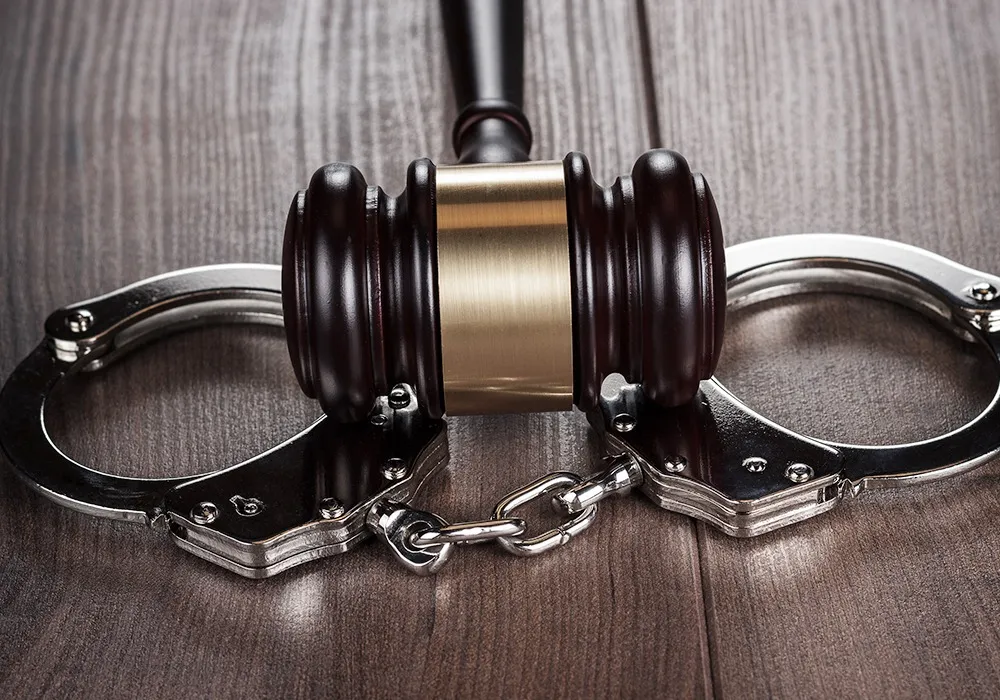Journalist arrested without proving the dissemination of knowingly false information: "Adil Soz" legal review

On July 3, by the decision of the Sarayagash District Court in the Turkestan region, the chief editor of "C-Inform," Amangeldy Batyrbekov, was arrested for 20 days on charges of defamation. In essence, the court abolished concepts such as "the right to make mistakes" and "good faith error." Following this logic, any mistake by a journalist could lead to imprisonment.
Even the respected international human rights organization, the Committee to Protect Journalists (CPJ), stood up for Batyrbekov, but it had no influence on the decision of the appellate board.
Amangeldy Batyrbekov's case:
The legal proceedings were initiated based on a statement by Bolatbek Nazhmetdinuly, a member of the Mazhilis (parliament), triggered by Batyrbekov's Facebook post on March 10, titled "SYBAYLASTYK PA NE BUL?" ("Is this corruption or what?"), in which it was mentioned that several years ago, B. Nazhmetdinuly was a suspect in a criminal case related to fraud. The parliament member believed that the journalist intentionally disseminated false information about him.
In court, Amangeldy Batyrbekov did not plead guilty, stating that the information he provided was not false and was supported by documents from the criminal case signed by an investigator from the Shymkent Police Department. According to these documents, B. Nazhmetdinuly was recognized as a suspect during the pretrial investigation of the criminal case. The journalist was provided with the documents by N. Aynabekov, who in 2019 filed a police report regarding embezzlement during the construction of a polyclinic and obtained the documents as a victim in that case.
N. Aynabekov confirmed Batyrbekov's statements, noting that he received copies of the criminal case documents regarding B. Nazhmetdinuly in April 2020 from an investigator, after which the documents were sealed and marked "Certified Copy." The interrogated investigator informed the court that Bolatbek Nazhmetdinuly was involved in the case as a witness with the right to legal defense, and he had only given N. Aynabekov the decision to terminate the case. After examining the case documents and hearing the parties involved, the court concluded that the chief editor, without verifying the accuracy of the information, disseminated false information defaming B. Nazhmetdinuly.
The Committee to Protect Journalists (CPJ) called on the authorities of Kazakhstan to release journalist Amangeldy Batyrbekov and amend the country's legislation to abolish arrests for defamation. "The 20-day prison term for Kazakh journalist Amangeldy Batyrbekov, who faced defamation charges and even attempted murder for his reporting, is deeply concerning," said Gulnoza Said, CPJ's Europe and Central Asia program coordinator. "Kazakh authorities must immediately release Batyrbekov and amend their defamation laws to prevent journalists from being imprisoned for their reporting."
Situation analysis:
1. There is no defamation without "knowing falsehood"?
The regional court essentially did not consider the most significant violation - the prosecution of the journalist for defamation without establishing the element of "knowing falsehood" in disseminating false information. Defamation is not attributed to any false information but only to that which is deliberately spread, where the disseminator knew for certain that they were publishing a deliberate falsehood. This must be proven first by the police during the administrative offense protocol and then during the court proceedings. However, in this case, the journalist disseminated information from an official document (investigator's decision) provided to him by one of the participants in the criminal case.
The affected parliament member also claims that his lawyer informed the journalist about the dissemination of false information only after the disputed publication. All of this clearly indicates that at the time of publication, the journalist was confident in publishing the truth, and there is no evidence to the contrary. Moreover, the lower courts completely disregarded the need for proof of the element of "knowing falsehood" to hold someone accountable for defamation.
2. Are the disseminated information false?
The falsity of the document provided to the journalist has not been officially established. The statements of the investigator who disavowed the signed document do not carry weight until an examination of the disputed document is conducted. The journalist wrote that the parliament member had been previously suspected of committing fraud (was a suspect in a criminal case). However, in court, the investigator provided explanations stating that the parliament member was allegedly recognized only as a witness with the right to legal defense, not as a suspect. In the Criminal Procedure Code, a witness with the right to legal defense is somewhat between a mere witness and a suspect.
This status is assigned when there are already relevant suspicions but insufficient evidence to formally recognize the person as a suspect and qualify their actions. A simple analysis of the term "witness with the right to legal defense" confirms this: defense against what? - suspicion of committing a crime. In other words, a witness with the right to legal defense is entitled to hire a lawyer to defend against suspicion that is already being investigated and that may be officially formalized as suspect status in the future. In accordance with paragraph 2 of the Regulatory Resolution of the Supreme Court of the Republic of Kazakhstan dated December 6, 2002, No. 26 "On the Practice of Applying Criminal Procedure Legislation Governing the Right to Defense," the right to defense of a witness, person with the right to legal defense, accused, defendant, convicted, acquitted encompasses all legally provided procedural opportunities to refute the emerging suspicion or mitigate responsibility and punishment.
Based on the above, there is virtually no meaningful distinction between a "suspect" and a "witness with the right to legal defense" in the context of the material published by the journalist. Additionally, this question was not subject to examination by a linguistic specialist, further casting doubt on the lower courts' conclusion regarding the falsehood of the disseminated information.
3. Presumption of innocence
According to Article 10 of the Code of Administrative Offenses (CoAO), the presumption of innocence means that any doubts about guilt must be interpreted in favor of the person against whom an administrative offense case has been initiated. However, this constitutional principle was ignored by the lower courts, considering the doubtful (unproven) circumstances of knowing falsehood and the falsity of the information disseminated by the journalist.
In accordance with paragraph 3 of the Regulatory Resolution of the Supreme Court of the Republic of Kazakhstan dated December 22, 2016, No. 12 "On certain issues of the application of general provisions of the Code of the Republic of Kazakhstan on Administrative Offenses by courts," when considering cases of administrative offenses, the principle of presumption of innocence, enshrined in Article 10 of the Code of Administrative Offenses, must be strictly observed.
4. The necessity of reviewing in the court of cassation instance:
According to Article 851 of the Code of Administrative Offenses, resolutions in cases of administrative offenses are subject to review in cassation proceedings in cases where the issued resolution violates the rights and legitimate interests of an indefinite circle of persons or other public interests, as well as in cases where uniformity in the interpretation and application of the law by courts is violated.
If the resolutions of the lower courts of the Turkestan region regarding holding individuals accountable for defamation without evidence of knowing falsehood remain in force, then all other courts in Kazakhstan, in order to maintain "uniformity" in the application of the law, will be able to imprison journalists for defamation in the same manner - in the absence of the elements of the offense.
It turns out that the resolution regarding Amangeldy Batyrbekov violates the rights not only of the arrested individual himself but effectively all journalists in Kazakhstan, who can be imprisoned by courts in similar cases not because they knowingly lied (as required by the law), but simply because, for example, they received a document with an error that was not known in advance.
"Adil Soz" recommends: In this situation, the Supreme Court, as the highest cassation instance, needs to correct the mistakes of the lower courts, immediately release Amangeldy Batyrbekov from detention, and restore the trust of journalists in the judicial system of Kazakhstan.





